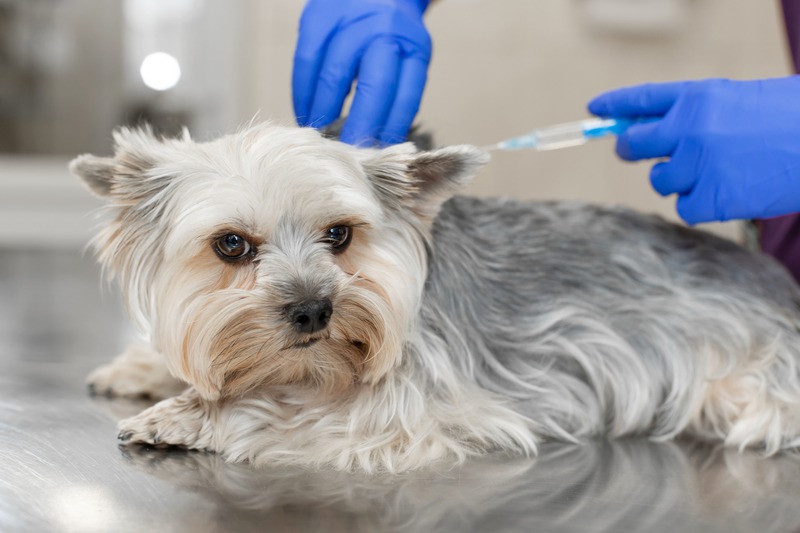
As pet owners, it’s natural to consider our furry companions as part of the family. Just like any loved one, we want to ensure they’re healthy and protected from potential dangers, especially diseases. One of the most effective ways to safeguard our pets’ health is through vaccinations. Not only do they protect our pets, but they also curb the spread of infectious diseases that can sometimes transfer to humans. But what exactly are these diseases that vaccinations guard against?
Canine Vaccinations and Disease Prevention
Core Vaccines
Some diseases are particularly severe or widespread, which is why veterinarians recommend ‘core’ vaccines for all dogs. These include:
-
Rabies: A notorious viral disease that can affect all warm-blooded animals, including humans, rabies is deadly and can be transmitted through bites or scratches.
-
Canine Distemper: This contagious virus affects the respiratory, gastrointestinal, and often the nervous system and can be fatal to dogs, especially puppies.
-
Canine Parvovirus: Often called parvo, this highly infectious virus is particularly dangerous to young dogs. It impacts their gastrointestinal tracts and leads to severe dehydration.
-
Canine Hepatitis: Caused by the adenovirus, this disease targets the liver and can vary from mild to fatal.
Regular pet routine exams provide a great opportunity to discuss vaccinations and your pet’s general health with your vet. These check-ups allow for personalized care, which is crucial because, like us, every pet is unique with individual health needs.
Non-Core Vaccines
Depending on your pet’s lifestyle, exposure risk, and where you live, other vaccines might be recommended:
-
Leptospirosis: A bacterial disease that affects the kidneys and liver, it can be spread to humans and is found worldwide.
-
Bordetella Bronchiseptica: Known for causing kennel cough, it’s highly contagious among dogs, especially those frequenting kennels or dog parks.
-
Canine Influenza: Also known as dog flu, this respiratory infection is emerging as a concern for dogs in crowded environments.
-
Lyme Disease: A tick-borne illness that can cause lameness, kidney disease, and other chronic health issues.
In the unfortunate event that your pet faces a medical emergency, time is of the essence. Whether it’s a vaccination-related reaction or a sudden illness, having access to quick, reliable care is crucial. That’s where an emergency vet in Arlington, TX, comes in. They are equipped to help your pet in dire situations, ensuring fast and professional care to get them on the road to recovery.
Feline Vaccinations and Disease Prevention
Core Vaccines
Similar to dogs, cats also have core vaccines that are essential for their health:
-
Rabies: Like for dogs, rabies vaccination is crucial for cats and is often legally required.
-
Feline Herpesvirus and Calicivirus: These viruses are two of the main causes of respiratory infections in cats.
-
Feline Panleukopenia: Also known as feline distemper, this highly contagious virus can have a high mortality rate, particularly in young kittens.
Non-Core Vaccines
There are also additional vaccines for cats that are recommended based on risk factors:
-
Feline Leukemia Virus (FeLV): This disease affects the cat’s immune system and can be a precursor to cancer. It’s especially recommended for outdoor cats or those with unknown backgrounds.
-
Feline Immunodeficiency Virus (FIV): Often compared to human AIDS, this disease also suppresses the immune system. While there’s a vaccine available, its use is generally less common and depends on individual risk assessment.
-
Bordetella: Cats can also get vaccinated against this respiratory disease, which is more commonly associated with dogs.
Knowing where to get reliable information about vaccines, like on this site, https://www.crossroadsvets.com/site/veterinary-services-arlington/cat-dog-vaccinations-parasite-prevention is key in making informed decisions about your pet’s health. A trusted vet clinic will provide you with the most up-to-date vaccine protocols and help you understand how each one protects your beloved pet.
Benefits of Regular Vaccinations for Pets
By keeping up with your pet’s vaccination schedule, you can not only prevent them from contracting these diseases but also contribute to the overall health of the pet community. Vaccinations have benefits that extend beyond just your pet:
-
Community Immunity: When most pets are vaccinated, it provides a level of immunity that can slow down or stop the spread of disease.
-
Cost-Effectiveness: While vaccinations have an upfront cost, they are far cheaper than the potential treatment costs for the diseases they prevent.
-
Long, Healthy Lives: Vaccinated pets are less likely to encounter life-threatening illnesses, thus leading to longer and happier lives.
Also, by maintaining your pet’s vaccinations, you’re not only being a responsible pet owner, but you’re also complying with local laws and regulations that often require certain vaccinations, like rabies.
Final Thoughts
Pet vaccinations are crucial in preventing a variety of potentially serious diseases. By understanding the diseases from which vaccines protect your pets, you’re better equipped to discuss your pet’s needs with your vet, ensuring they live the happiest, healthiest life possible. Remember, in emergencies, find quick help, and for ongoing wellness, stick to a routine that includes professional vet care and vaccinations.























































